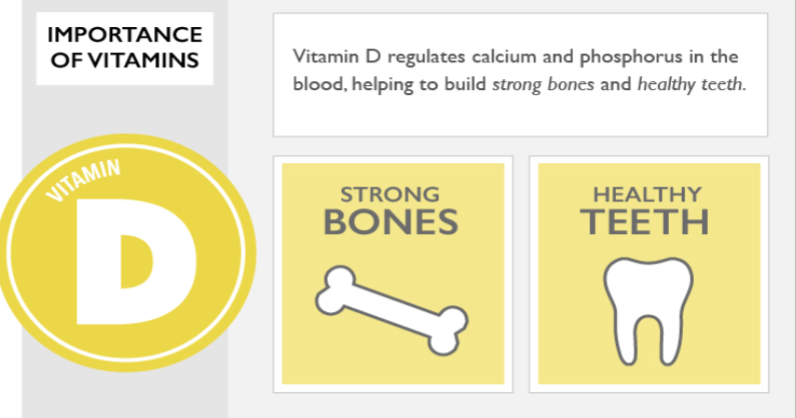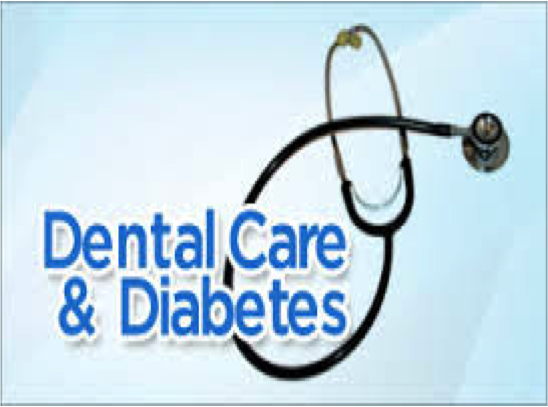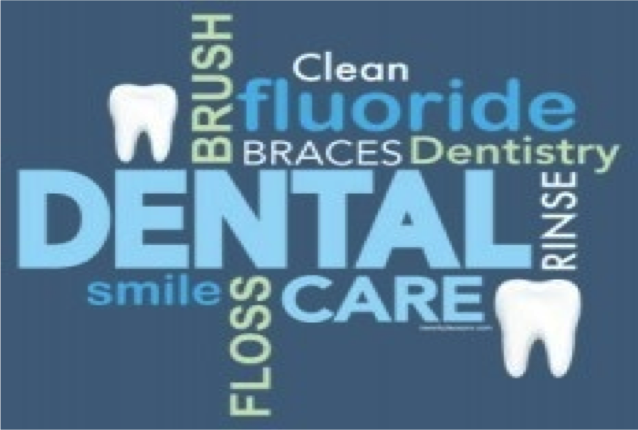How does Vitamin D relate to oral health?
There has been a noticeable link between low vitamin D levels and higher risks of both dental caries and periodontal disease.
Let’s look at each of these individually:
Vitamin D: Essential vitamin for the absorption and metabolism of calcium and phosphorous. Sunlight promotes sufficient supplementation though the skin when regularly exposed to normal amounts of sun daily. Deficiency can lead to poor bone health, deformity and weakness. Vitamin D has other roles in the body, including modulation of cell growth, neuromuscular and immune function, and reduction of inflammation.
Periodontal Disease: Untreated gingivitis (inflammation of the gum tissue) causes infection of the gums, bone, and connective tissues surrounding teeth. Bacterial toxins and the body’s natural response to fighting infection break down these support systems and can eventually lead to gum, bone and tooth loss.
Dental Caries: Cavity formation in teeth caused by bacteria that attach to teeth. The bacteria release acids in the presence of sucrose, other sugars, and refined starches which lead to the decalcification of the enamel; tooth decay.
Enamel is the most mineralized substance in the body made up of calcium and phosphate. Vitamin D also produces cathelicidin and defensins that have antimicrobial properties helping to reduce the number of bacteria in the mouth and also help absorb calcium and phosphate from the foods we eat. Thus with optimum vitamin D levels we can improve the strength of teeth by fighting demineralization from the bacteria.
Vitamin D can also reduce the number of matrix metalloproteines (MMP’S), enzymes associated with periodontal disease. The cells in our immune system and teeth have vitamin D receptors. These receptors bind with the vitamin D we take into our bodies thus increasing the amount of good antimicrobial proteins in the body which fight the bacteria that cause dental caries and periodontal disease.
Vitamin D in relation to Dental health is simple. A healthy vitamin D level in the body decreases the severity of periodontal disease by supporting stronger healthy bone, reduces bacteria in the mouth and leads to stronger enamel with less decalcification.
Some statistics:
- Per the CDC (Center for Disease Control) 47% of the US population age 30 and over have mild, moderate, or severe periodontal disease. Nearly 64% of adults 65 and over have moderate to severe forms of periodontal disease.
- 92% of adults 20 to 64 have had dental caries in their permanent teeth
- Dental caries (tooth decay) remains the most prevalent chronic disease in both children and adults
- Periodontal disease is the most common cause of tooth loss among adults.
- People with lower levels of Vitamin D tend to have more attachment loss around teeth.
- Low vitamin D levels have been associated with other diseases and health concerns such as: cancer, cardiovascular disease, diabetes, pre-clampsia, and osteoporosis.
- The vitamin D council has reported people living in sunny areas have been shown to have fewercavities then those living in less sunny areas.







